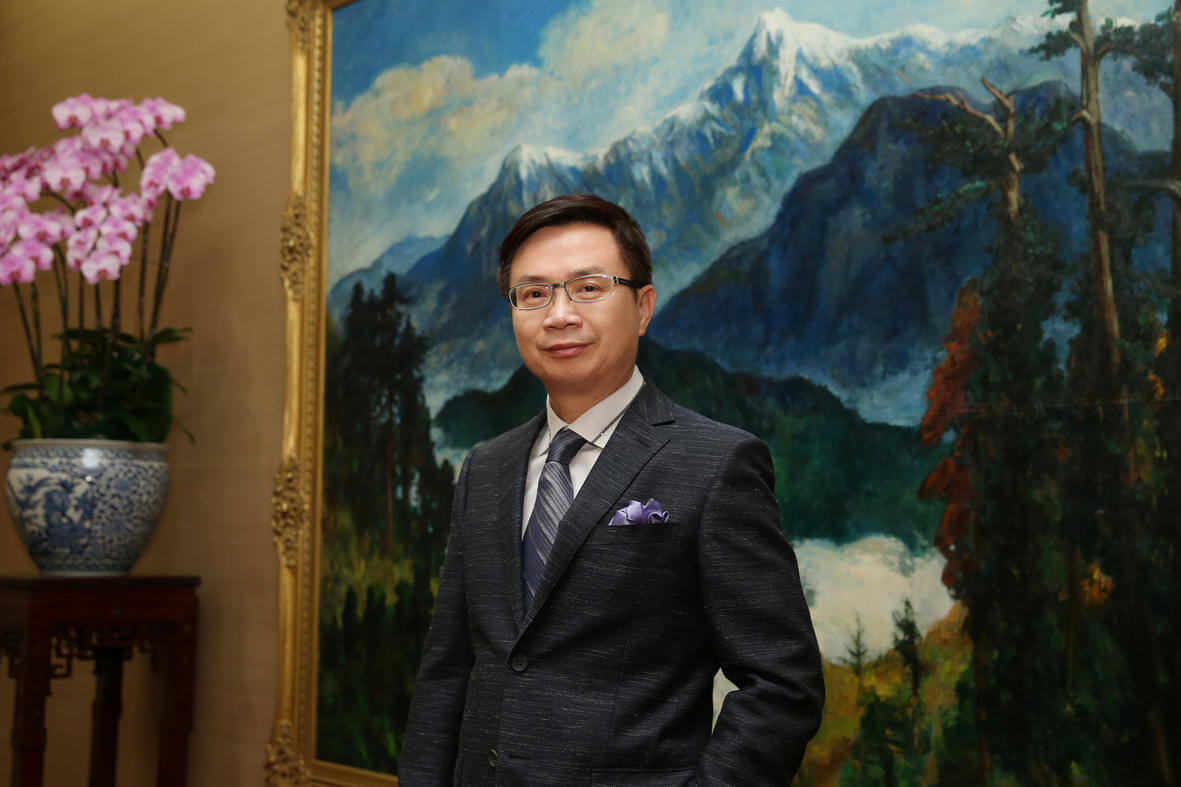Warning signals for the 'New Southbound Policy': The China Post
Sign up now: Get insights on Asia's fast-moving developments

The Taiwan government seems to have stumbled again with the rumoured appointment of New Southbound Policy Office Director James Huang to concurrently serve as Taiwan's top envoy to Singapore.
PHOTO: NEW SOUTHBOUND POLICY OFFICE
Follow topic:
In its editorial on Sep 12, the paper questions if the government's policy can be carried out on a 'part-time' basis.
Just when Taiwan President Tsai Ing-wen's administration appears to have found its footing after stumbling for the better part of three months, the government's recent handling of the "New Southbound Policy" and emergence of individual scandals belies the existence of problems both at home and abroad.
The government seems to have stumbled again with the rumoured appointment of New Southbound Policy Office Director James Huang to concurrently serve as Taiwan's top envoy to Singapore. The envoy position had been left vacant since Antonio Chiang's resignation following his arrest for driving under the influence.
While spokesman Alex Huang responded that the Presidential Office has yet to confirm the decision, the very idea of the appointment shows that the government is ill-equipped.
It remains to be seen whether Mr Huang will continue to hold both jobs, but the government's failure to clarify the situation introduces a multitude of questions.
How can the government, Taiwanese nationals and the foreign countries targeted by the "New Southbound Policy" expect to have confidence in Huang's commitment if he takes up the post in Singapore?
Allowing Mr Huang to juggle his responsibilities as the office's director while working as an envoy would mean one of the Tsai administration's major policy initiatives would be left in the hands of a "part-timer".
Reports also surfaced that the New Southbound Policy Office would be merged with the Executive Yuan. The speculation lead to a minor scramble from the Presidential Office in an effort to control the damage, with spokesman Alex Huang being forced to deny the office is to be closed altogether.
Regardless of any reshuffling, Mr Huang said the office would remain as the President's policy consulting unit, explaining that the Executive Yuan's role in the "New Southbound Policy", whatever it is to be, would be announced at an "appropriate time".
Government officials also said a trade office under the Executive Yuan would soon be established to coordinate and negotiate with foreign governments. Yet the lack of clarity is distressing.
Cabinet members announcing the Executive Yuan's plan to promote the policy did not specifically address what role the nation's highest administration body would play and failed to declare who would implement the initiative.
Uncertainty hangs over the nation and partners abroad as they wait on the government to "collect its thoughts".
Despite Ms Tsai's announcement about the initiative on the campaign trail in 2015, the government's regrouping efforts only emphasise how it only has a blueprint of what the policy will actually entail. The administration's actions seem to say that hammering out the details is not their top priority.
Prolonging the clarification process will only prevent industry and education opportunities from blossoming.
In the long run, both of these sectors require government initiative and guidance.
This need for support is evidenced by the ban that Formosa Plastics Group faces in Vietnam for large-scale pollution.
The group's crimes led to mass fish deaths, and a more recent scandal involved the illegal burial of huge amount of waste.
The lack of (or lacklustre) government support for Formosa Plastics is suggestive: The government is unwilling to back up enterprises who run into sticky situations abroad.
Failing to pacify unease among enterprises, an absent government could lead to a deterioration in foreign relations and could cultivate distrust, not only in Vietnam, but also in other South-east Asian countries, who will take note of Vietnam's experiences allowing Taiwanese investment into their borders.
Back on home soil, an Indonesian migrant worker who was reportedly sexually assaulted by her employer lead to Indonesian labour officials threatening legal action should Taiwanese authorities fail to act.
This is another blow to Ms Tsai's "Southbound" initiative, which in addition to encouraging business investments, also aims to cultivate cultural and educational exchanges.
The cultivation of such interests, however, must be done on the basis of mutual trust.
It is critical for the government to take heed of the sexual assault charges, as such charges will only strengthen the narrative of Ms Tsai's "New Southbound Policy": that Taiwan's government and its people are not ready to strengthen relations and trust with their southern neighbours.
-------
The China Post is a member of The Straits Times' media partner Asia News Network, an alliance of 21 newspapers.

